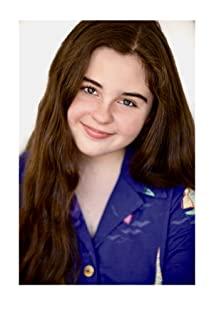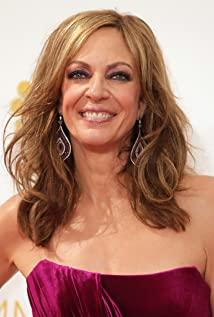After staying at home for a month and a half, the parent-child relationship is on the verge of breaking down every day. If you have a mythical beast at the age of "dogs too", don't tell me you haven't thought about throwing the baby away. (Even if you say no, I don't believe it.) Because I can't go anywhere, I started a journey to watch old movies with my baby. I used to look at it from an adult perspective, but in order to tell the female goose, there are many more children's perspectives. Disney's (Pixar) films often present universal values in many ways. Take the classic Pixar movie "Finding Nemo" as an example. My baby and I watched one or two movies together. My baby prefers the second film, "Where's Dolly", although the first film has better public awareness and reputation, but children The impression of Dolly completely surpasses Nemo.
In fact, the second "Where's Dolly Going" is more based on the "road of children's growth", so it can empathize with children more. The first part focuses on family affection. While telling the deep father's love, it also expresses themes such as courage, environmental protection, and self-transcendence. While the second part focuses on personal growth, there is a proposition that can be explained to children - why make friends? What are friends? How to make friends?
About why make friends? My daughter's personality is a bit similar to mine. Most of the time, she's a loner. She's not the kind of character who likes to take the initiative to make friends. I respect her quite a bit, and I won't force her to be enthusiastic and unrestrained. But when we watch animated movies, we are immersed in non-reality, and we can take the opportunity to talk about the role of friends figuratively. In Where's Dolly, friends are very important to Dolly. Because she suffers from short-term amnesia. If she didn't meet many friends along the way, she would soon forget what she was going to do and where she was going. This can even be said to be the "problem" of the film. In the first shot, Dolly's parents are teaching her how to make friends. Instead of giving up socializing her child because of her flaws, they go to great lengths and keep repeating, telling her how you should introduce yourself and how to be friendly. Dolly's ability to rediscover her parents when she grew up is closely related to the teachings of her parents when she was a child. These teachings are not only "don't give up, keep swimming" or "our home is a place with many shells", the most important I'm afraid it's a self-introduction "hi, I'm Dolly and I suffer from short-term amnesia".
Dolly's old friends and new friends each played an important role in her family-seeking journey. The octopus took her out of the lab, the whale shark told her where her home was, the killer whale used echolocation to help her navigate the darkness and fear, and the best thing Dolly did was: Constantly ask friends for help. When she was very helpless in the dark water pipe, she still said to herself "someone will help me". Just like in the real world of adults, maybe you will only meet noble people if you keep asking for help and believe that someone will help you. In the whole movie, friendship takes up a lot of space. Dolly has found her parents in about an hour, and the next half an hour is about Dolly leaving her parents to save her friends. It is actually more difficult for a child to understand why she has to leave after finding her parents. For her, the most terrifying thing in the whole movie is when Dolly and her parents get lost. I said to the female goose, you see, this is the true meaning of making friends. Your friends help you, and when they need help, you need to step up. There is a Chinese saying, "Rely on your parents at home, and rely on friends when you go out." That's the truth. About what is a friend? Children's understanding of friends is very simple, 1, can play with me. 2. Someone I like. I thought that too for a long time when I was a kid. But Dolly's friends aren't two simple ones. Dolly's friends are: 1. A life-and-death relationship. Like Marlin and Nemo. 2. Interest-related type, the values may be different, but in order to achieve each other's goals, they can cooperate and eventually become friends. Like octopus. 3. The "friends of the general horns" who have been lost for a while in the middle, but can still do their best to help after regaining their friendship, such as whale sharks. There is also a friend of a friend, an indirect friend, but also plays a very key role, such as water birds and killer whales. The so-called wide-ranging good karma is like Dolly.
Among them, friends like octopus, let alone children, do not necessarily know how to make friends. What he saw at first was "interest", the "mark" on Dolly. And, two people, no, two fish have different values, octopus is afraid of the sea, Dolly likes the sea. But they have reached a consensus on the exchange of interests, which does not affect their cooperation. This is the so-called "seeking common ground while reserving differences". The question of "what is a friend" has become very different in today's society. My child may face a social system with more diverse values in the future. If she goes abroad to study, she may make more friends than me. More broadly, it is particularly important to know how to "seek common ground while reserving differences".
About how to make friends? Dolly's way of making friends is very simple, but in reality we may not be able to do it. 1. Be proactive and honest. Dolly's friends are made on the initiative. After the encounter, Marin accidentally helped him find his son and became the best friend of life and death. Octopus is her initiative to ask the other party if she can help her find her parents, and in exchange she can give him the mark on her body. When taking the initiative to make friends, another important point is to be honest and tell the other party about your weaknesses and needs. The so-called "honesty is the best strategy". 2. When the other person hurts your feelings, speak up. Children are better at this than adults. During the process of looking for parents with Octopus, Octopus said, "No wonder you lose your parents", which seriously hurt Dolly's feelings. She did not give up or cry sadly at this time. I didn't reflect on whether I really couldn't, but bravely and directly expressed the meaning of "you hurt me, you have no heart". This direct expression of "I've been hurt" is very important in human-to-human interactions. Especially for girls. Many girls have been inadvertently nurtured by society since they were children and become people who dare not express their dissatisfaction, which makes them the first to reflect on themselves when they are hurt. I hope all girls' parents tell them when they are young that if you are hurt by someone else, it must be the other person's fault. 3. When your friends need you, you will never turn back. Dolly can have a life-and-death relationship like Marlin and Nemo, on the one hand, because Dolly has qualities and spirits that they admire, such as her never giving up. When you have friends who are worthy of both sides, the other party must have something to move you. On the other hand, Dolly won't give up on friends. Even when she finds her parents and completes her ultimate goal, she will still risk leaving her parents again for the sake of friends, which is also a sign that she has grown into a mature and independent "fish".
As I was writing this, my daughter looked at the picture I was looking for and said, "Dolly really made a lot of friends". I said, yeah, she's really good. Stories are a child's best teacher. There are many truths that you can tell your child will yawn, but it may be very effective to tell it through a movie. Probably the magic of Disney (Pixar) movies is here.
PS The original text was first published on my public account~
View more about Finding Dory reviews











